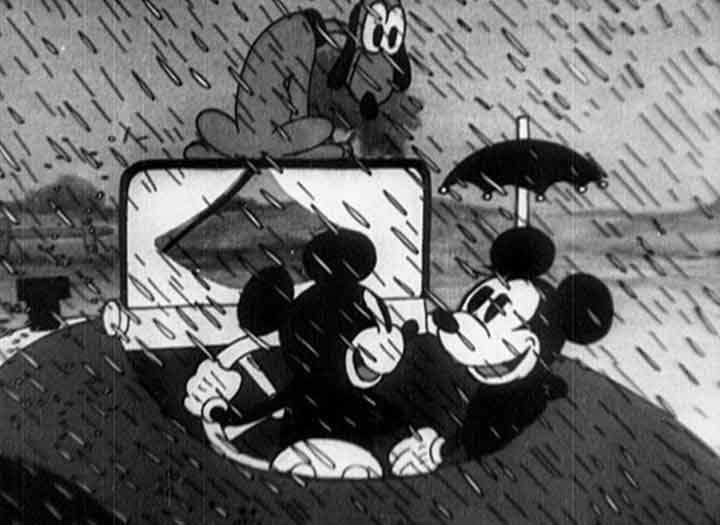 Disney’s seven-minute cartoon The Picnic packs as many picnic conventions as possible: a motorcar drive to the country, a stream, shady tree, a wicker basket, a gingham cloth jammed with a gourmand feast of sandwiches, Swiss cheese, mustard, pickles, olives, honey,...
Disney’s seven-minute cartoon The Picnic packs as many picnic conventions as possible: a motorcar drive to the country, a stream, shady tree, a wicker basket, a gingham cloth jammed with a gourmand feast of sandwiches, Swiss cheese, mustard, pickles, olives, honey,...
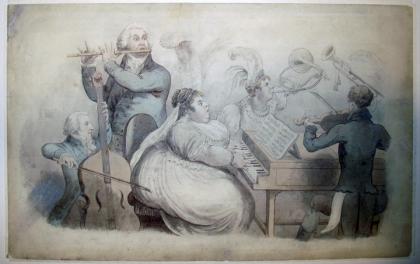 The Pic-Nic Society was a London club devoted to theatrical entertainment, lavish dinners, and gambling. The Pic-Nics notoriety invited scandal and satire. Burney’s The Pic-Nic Orchestra is a knock-off of James Gillray’s The Pic-Nic Orchestra. Caricatures...
The Pic-Nic Society was a London club devoted to theatrical entertainment, lavish dinners, and gambling. The Pic-Nics notoriety invited scandal and satire. Burney’s The Pic-Nic Orchestra is a knock-off of James Gillray’s The Pic-Nic Orchestra. Caricatures...
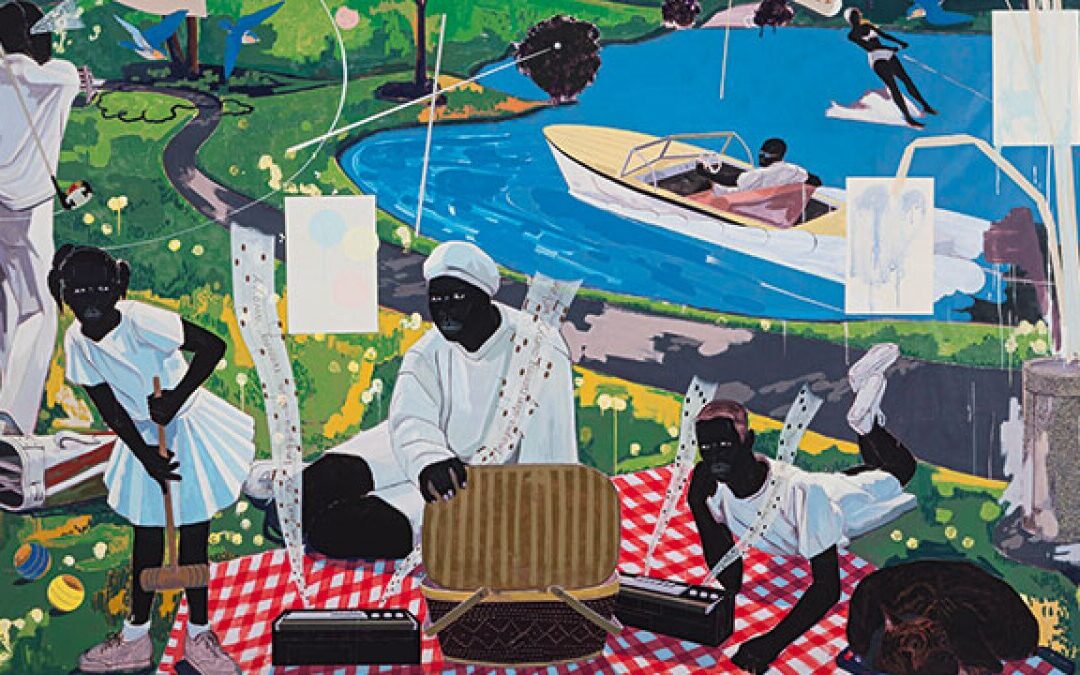 Marshall’s title of Past Times is ambiguous. Usually, leisure activities are “pastimes,” but as two words “past times” suggests his memories of picnics or, more generally, the pleasantries of leisure. His ambiguity is intentional, especially because this is a picnic...
Marshall’s title of Past Times is ambiguous. Usually, leisure activities are “pastimes,” but as two words “past times” suggests his memories of picnics or, more generally, the pleasantries of leisure. His ambiguity is intentional, especially because this is a picnic...
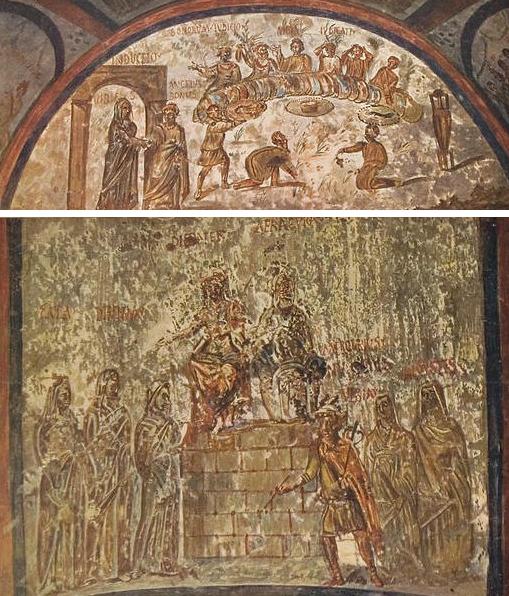 The feast that decorates Vibia’s resembles a picnic. Her life story is painted in an indented arch. In a comic strip style, Vibia journeys through Hades to Elysium at her death. On the left, Vibia is being led through an archway labeled Inductio by Good Angel, Angelus...
The feast that decorates Vibia’s resembles a picnic. Her life story is painted in an indented arch. In a comic strip style, Vibia journeys through Hades to Elysium at her death. On the left, Vibia is being led through an archway labeled Inductio by Good Angel, Angelus...
 The Sevso Plate * (27.8 inches in diameter) may also reference a hunting feast describe by the roman writer Philostratus. But the iconography is Christian. The Chi-Rho situated at the apex of the legend on the plate’s circumference is a symbol for Jesus Christ...
The Sevso Plate * (27.8 inches in diameter) may also reference a hunting feast describe by the roman writer Philostratus. But the iconography is Christian. The Chi-Rho situated at the apex of the legend on the plate’s circumference is a symbol for Jesus Christ...
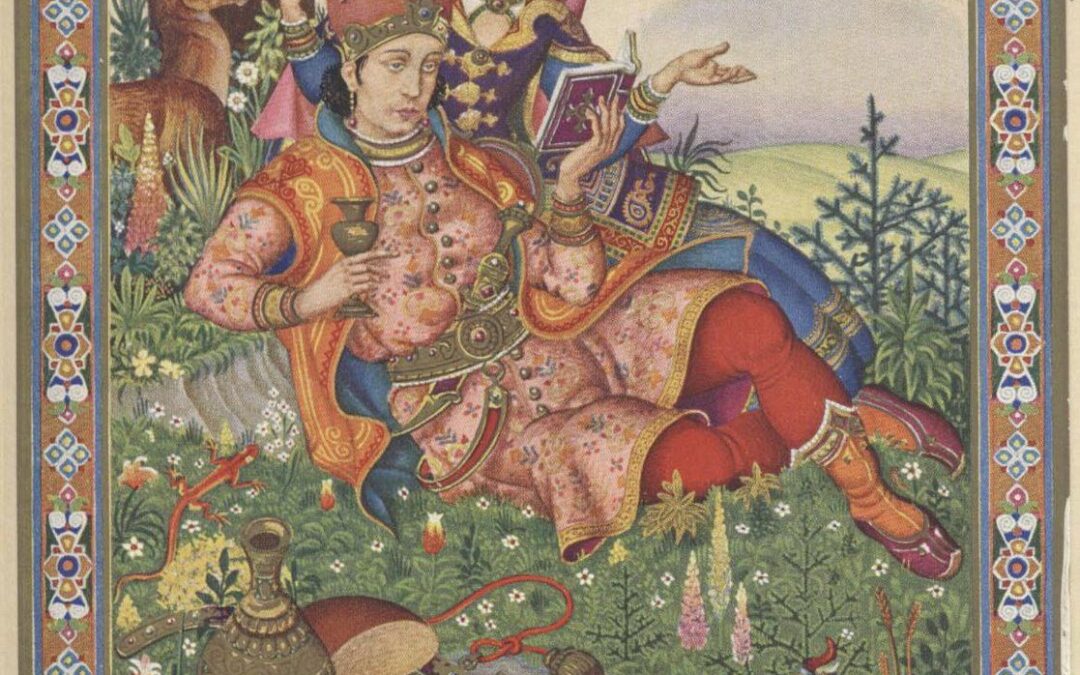 Omar Khayyam is better known for his love poems than his philosophy. His vision of lovers picnicking is in Rubáiyát “XI” in the collection of his poetry titled The Rubáiyát of Omar Khayyám, most often read in Edward Fitzgerald translation: A Book of Verses...
Omar Khayyam is better known for his love poems than his philosophy. His vision of lovers picnicking is in Rubáiyát “XI” in the collection of his poetry titled The Rubáiyát of Omar Khayyám, most often read in Edward Fitzgerald translation: A Book of Verses...
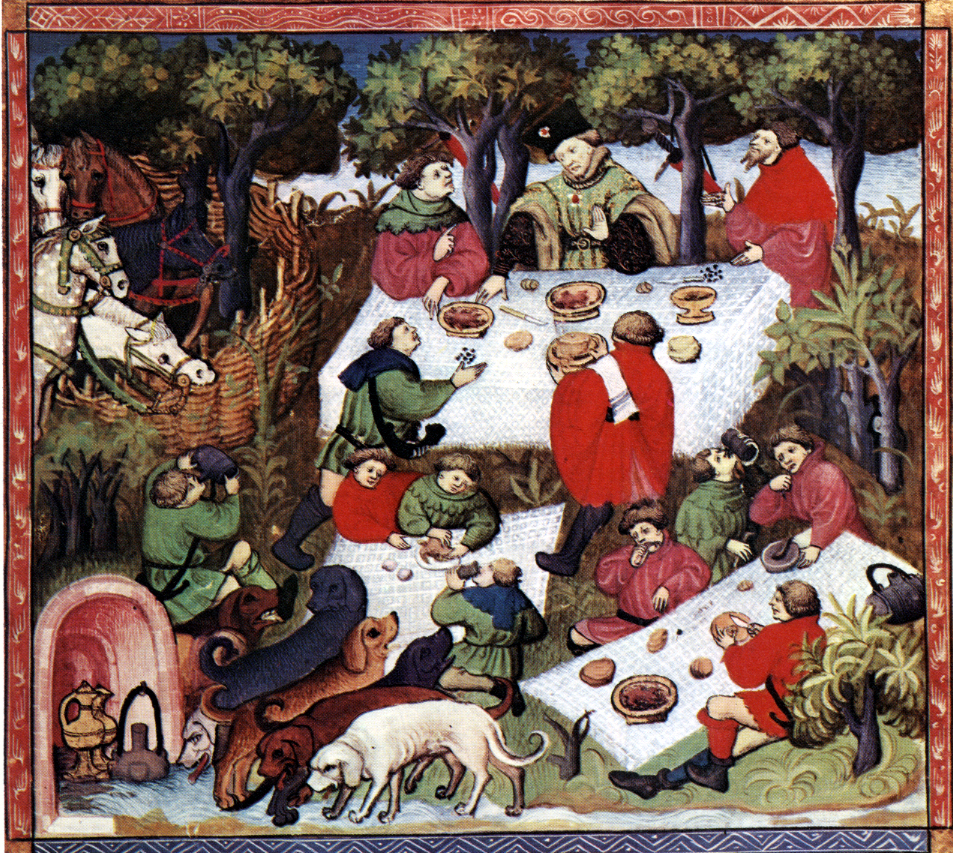 Gaston III’s The Book of Hunt formalized the hunter’s assemblée as the model for a meal during a hunt. It is not a picnic. Gaston did not intend this gathering as a luncheon but as an early morning meeting during which the day’s hunt was discussed...
Gaston III’s The Book of Hunt formalized the hunter’s assemblée as the model for a meal during a hunt. It is not a picnic. Gaston did not intend this gathering as a luncheon but as an early morning meeting during which the day’s hunt was discussed...
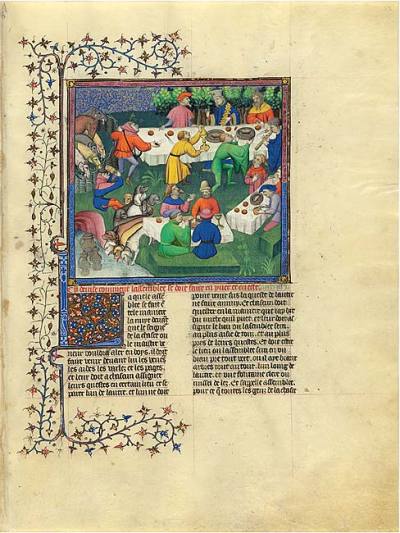 When Edward Langley, 2nd Duke of York, translated Gaston’s Le livre de chasse (1389) into English, French was still the language of the Court and elsewhere. He renamed it The Master of Game.* Like Chaucer, Edward’s translation decided to write in English...
When Edward Langley, 2nd Duke of York, translated Gaston’s Le livre de chasse (1389) into English, French was still the language of the Court and elsewhere. He renamed it The Master of Game.* Like Chaucer, Edward’s translation decided to write in English...
 In The Lives of the Painters, Vasari offers Piero as a preternaturally gloomy man. “As he discoursed,” Vasari says, “he would twist everything to the strangest meanings ever heard.” Why else would an artist paint a wedding picnic dinner ending...
In The Lives of the Painters, Vasari offers Piero as a preternaturally gloomy man. “As he discoursed,” Vasari says, “he would twist everything to the strangest meanings ever heard.” Why else would an artist paint a wedding picnic dinner ending...
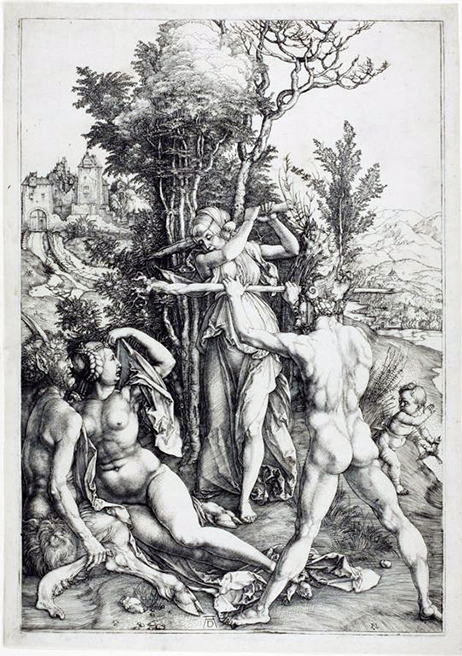 Xenophon’s Memorabilia of Socrates (371BCE) tells that when Hercules was approaching manhood, he was given a choice of a life of pleasure or a life of Virtue. While sitting at a crossroads and considering his future, he is approached by two immortal women, Virtue, in...
Xenophon’s Memorabilia of Socrates (371BCE) tells that when Hercules was approaching manhood, he was given a choice of a life of pleasure or a life of Virtue. While sitting at a crossroads and considering his future, he is approached by two immortal women, Virtue, in...











